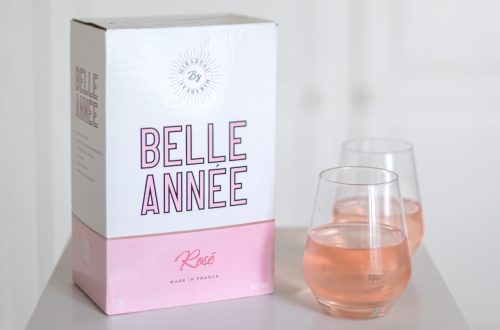2020 may not have been a Belle Année but we have some good news to share with our Rosé fans. Introducing a boxed wine that you can be sure to get some quality content from. Award winning Mirabeau, known for their ‘best rosé in a bottle for under £10’, have recently launched Belle Année bag-in-box wine and we cannot get enough of it!
In a bid to create a more sustainable option for wine drinkers, they are forging the path to lowering your carbon footprint whilst indulging in their sublime Gold Medal, (Drinks Business Global Masters Rosé) wine. This beautiful pale pink wine is a dry yet aromatic rosé perfect and light enough to pair with food. If you think rosé is only for the Summer, well, this year we throw all the rules out of the window. If you love a decent rosé, you will love this! With a price point as attractive as the wine itself it’s actually much more cost effective to choose the bag-in-box option getting you more bang for your buck.
As well as fitting onto the door of your fridge, this handy box holds three bottles of wine whilst lasting a whole four weeks after opened. Now if an increased life span for your wine isn’t what you’re after, I don’t know what is!! The fully recyclable cardboard box reduces space and waste with the pouches guaranteed to keep your wine fresher. This is the perfect aperitif whilst being the perfect size to share with your loved ones while we can over the festive period. What’s more, this would make the perfect gift for any wine lover in need of a little TLC this year.
Belle Année literally translates as ‘beautiful year’ and with 2020 not being so beautiful, we hope some wishful thinking from our friends at Mirabeau can help you to ring in the New Year with this beautiful wine.
Belle Année bag-in-box is available to buy at Waitrose stores nationwide.
Waitrose.com and Waitrosecellar.com
RRP: £25.99

